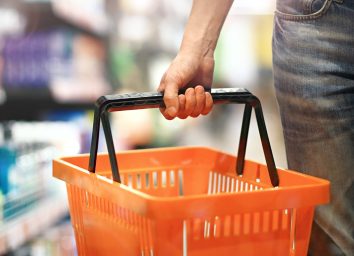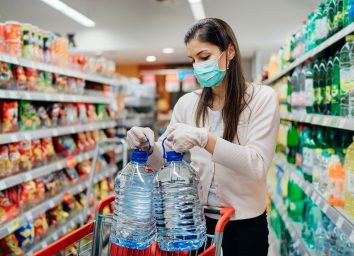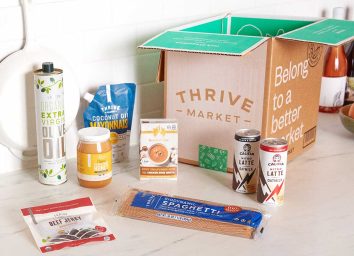8 Scary Signs Your Grocery Store Isn't Sanitized Properly
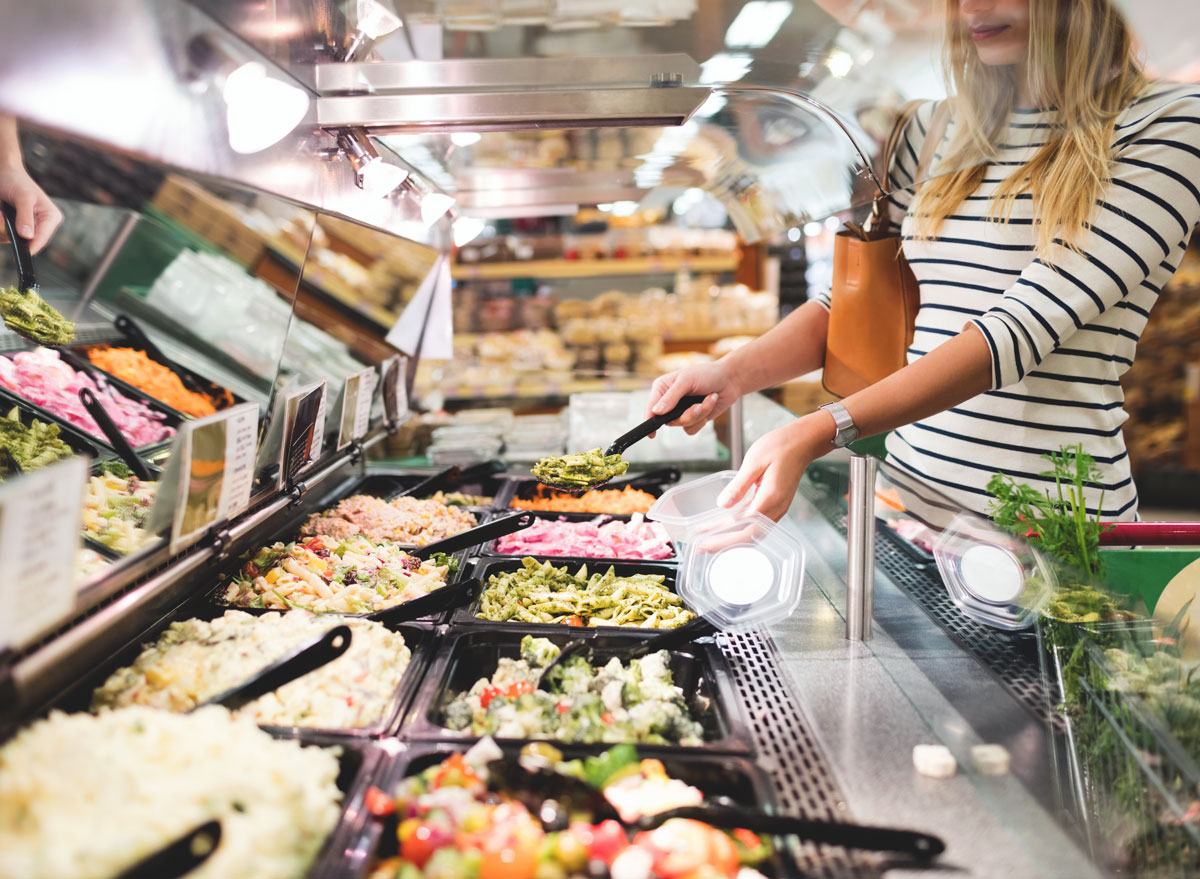
Grocery store cleanliness has never been as important as it is during a national health crisis. Although the CDC warns that the biggest risk of coronavirus infections in grocery stores comes from other shoppers, a base level of in-store hygiene can go a long way in protecting customers and staff.
We've used the cleanliness guidelines of several janitorial and building services that work with grocery store chains to put together a list of signs that your grocery store may not be maintaining proper hygiene standards. We've also consulted the CDC and FDA recommendations for retail food stores, restaurants, and associated pick-up and delivery services on how to best protect their employees and customers during the COVID-19 outbreak.
Based on these reports, the following occurrences are warning signs your grocery store isn't doing enough to ensure high hygiene standards during the pandemic.
Read more: 7 Precautions You Must Take Before Going Grocery Shopping
Entrance and surrounding sidewalk is dirty
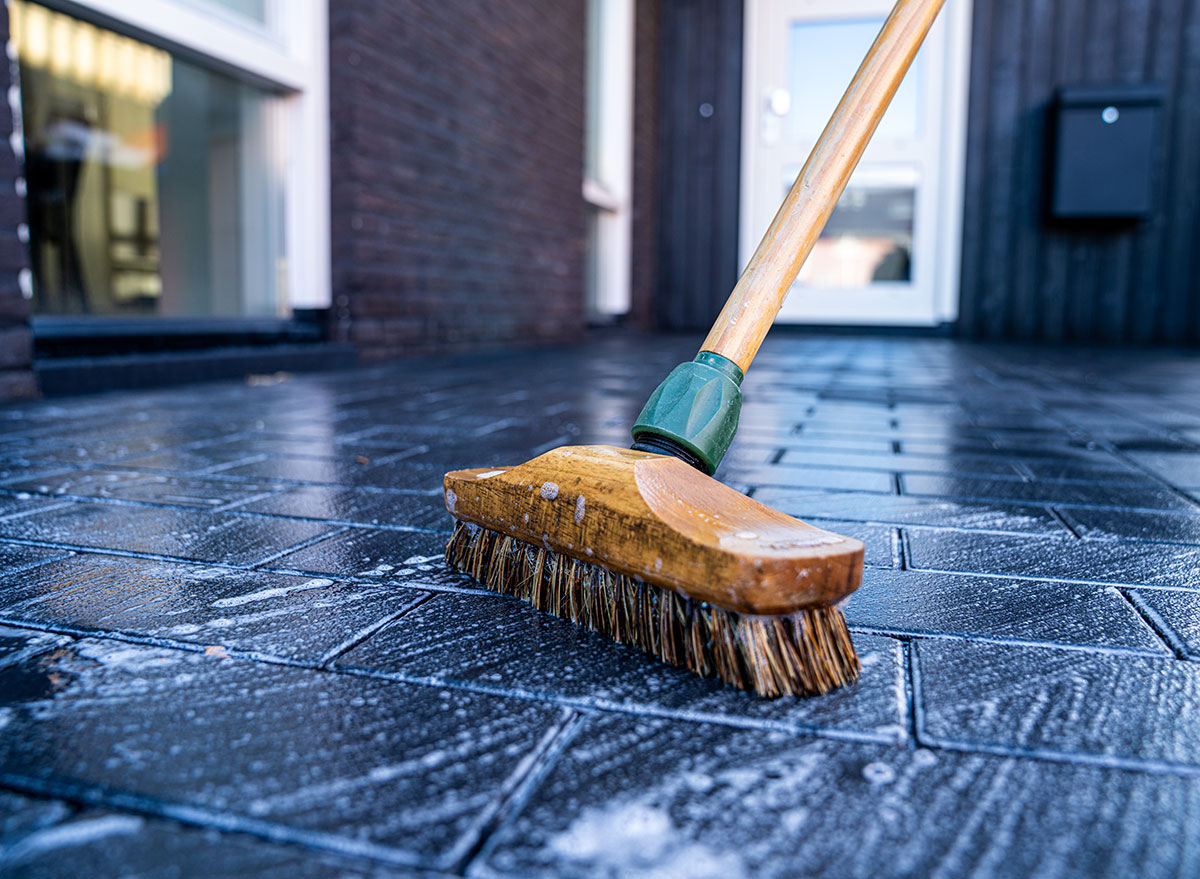
According to a Cleaning Services Group (CSG) report, grit around the entrance area of a grocery store could be a bad sign of things to come once you're inside. Litter, coffee stains, cigarette butts, and gum residue in front of your grocery store will tell you right away whether your local grocer follows the proper cleaning guidelines that meet industry standards.
No hand sanitizer or wipes available for shoppers
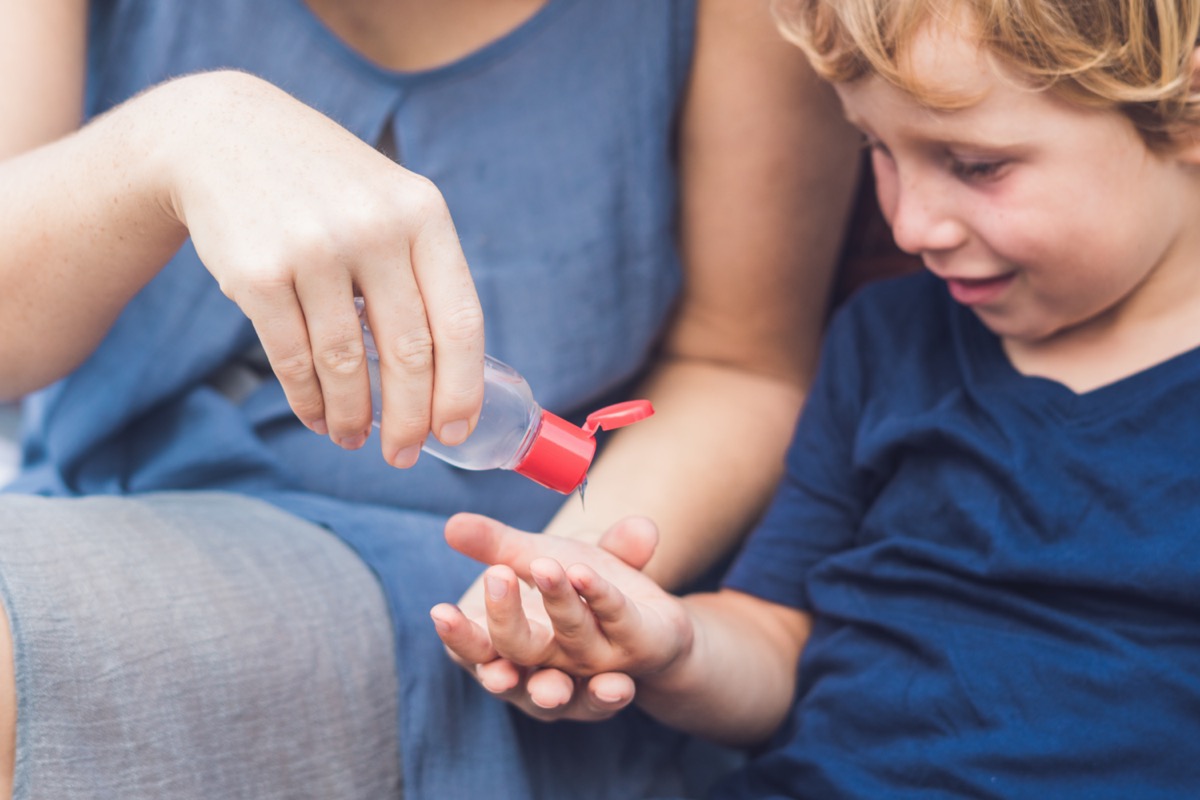
The FDA has recommended that grocery stores make no-touch hand sanitizing stations available for their customers, especially in areas with high touch-transfer potential, like the shopping cart stations, meat counters, and checkout counters. If your grocery store doesn't provide hand sanitizer or sanitizing wipes during this time, it's a sign they are not following FDAs recommended best practices in keeping you safe.
Salad bars and self-serve beverage stations are still open
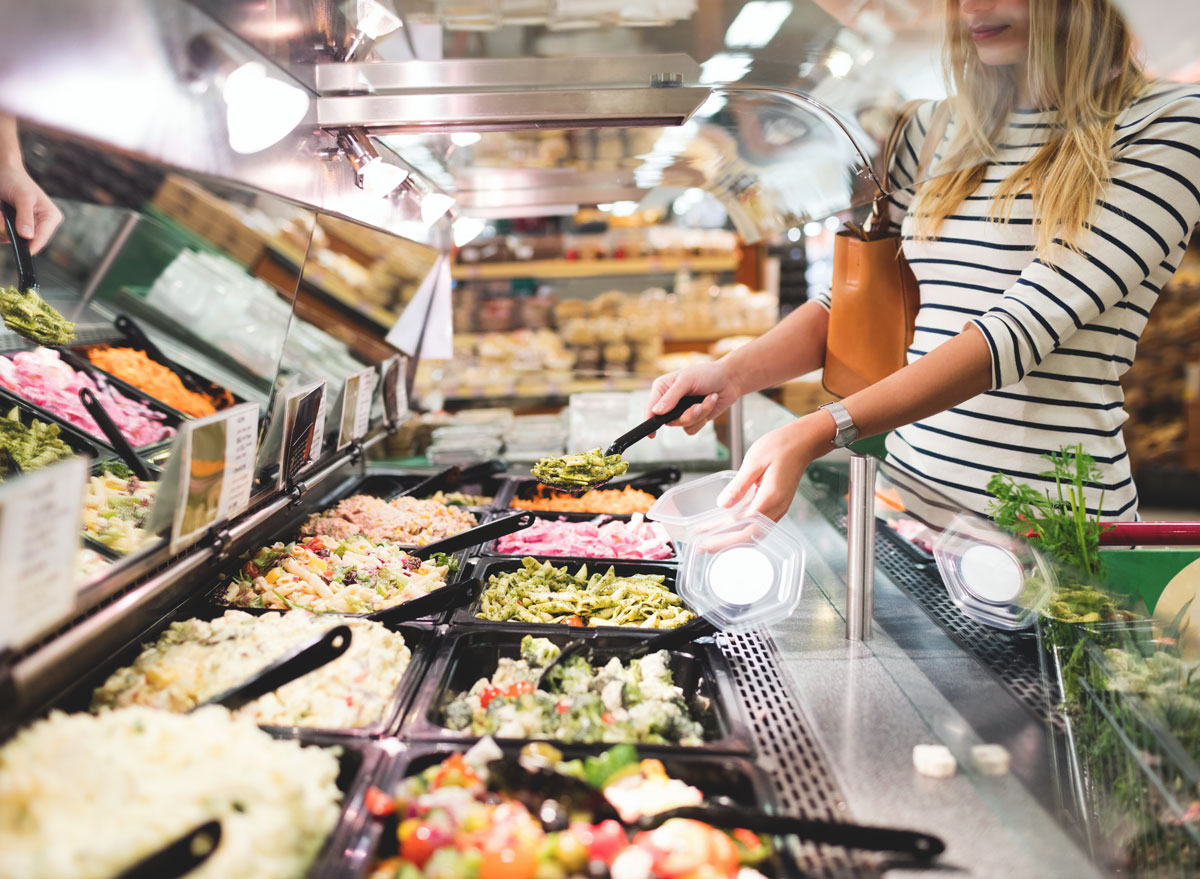
The FDA advises grocery stores and restaurants to "discontinue operations such as salad bars, buffets, and beverage service stations that require customers to use common utensils or dispensers." If your grocery store is disregarding this warning and keeping such high-risk contamination areas open, it's likely they are not following other cleanliness and COVID-19 safety practices. Even if you shop there, stay away from these areas.
Dirty floors

CSG outlines the cleanliness of floors as paramount to overall store cleanliness. Their report states that "Dedicated retailers should wash and buff their floors daily." If your grocery store has dirty, sticky, or muddy floors, it's a sign they don't take hygiene seriously.
Dirty restrooms
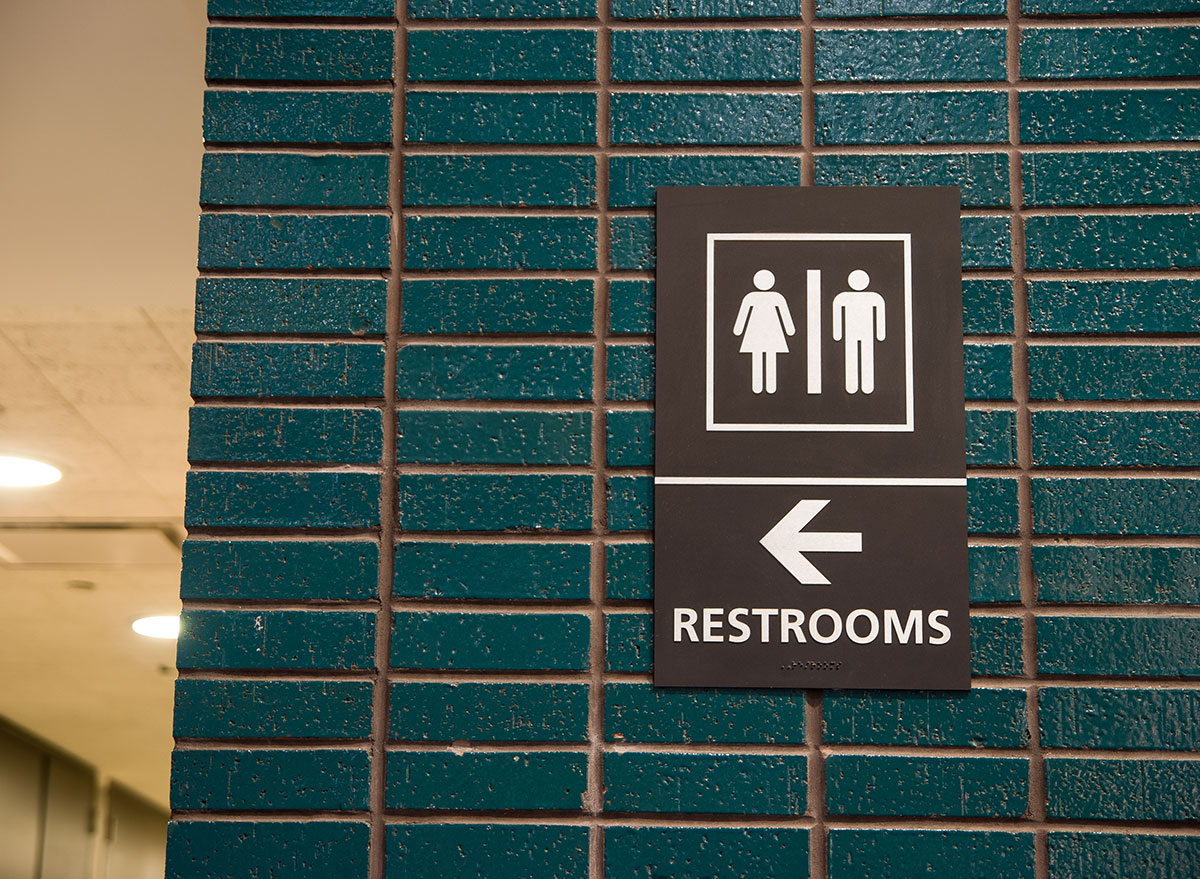
Same goes for restrooms, which we all know can be a cesspool of germs if not maintained properly. CSG advises that newer, well-maintained restrooms should have "bright lighting, multiple stalls, air fresheners, and better accessibility." Grocery stores that are doing things right will inspect their restrooms several times an hour to maintain cleanliness and restock supplies like soap, paper towels, and toilet paper. If your grocery stores' restroom looks like it hasn't been cleaned or restocked in a while, you can safely assume they didn't disinfect other areas of their store either.
Spills and messes are not cleaned up promptly
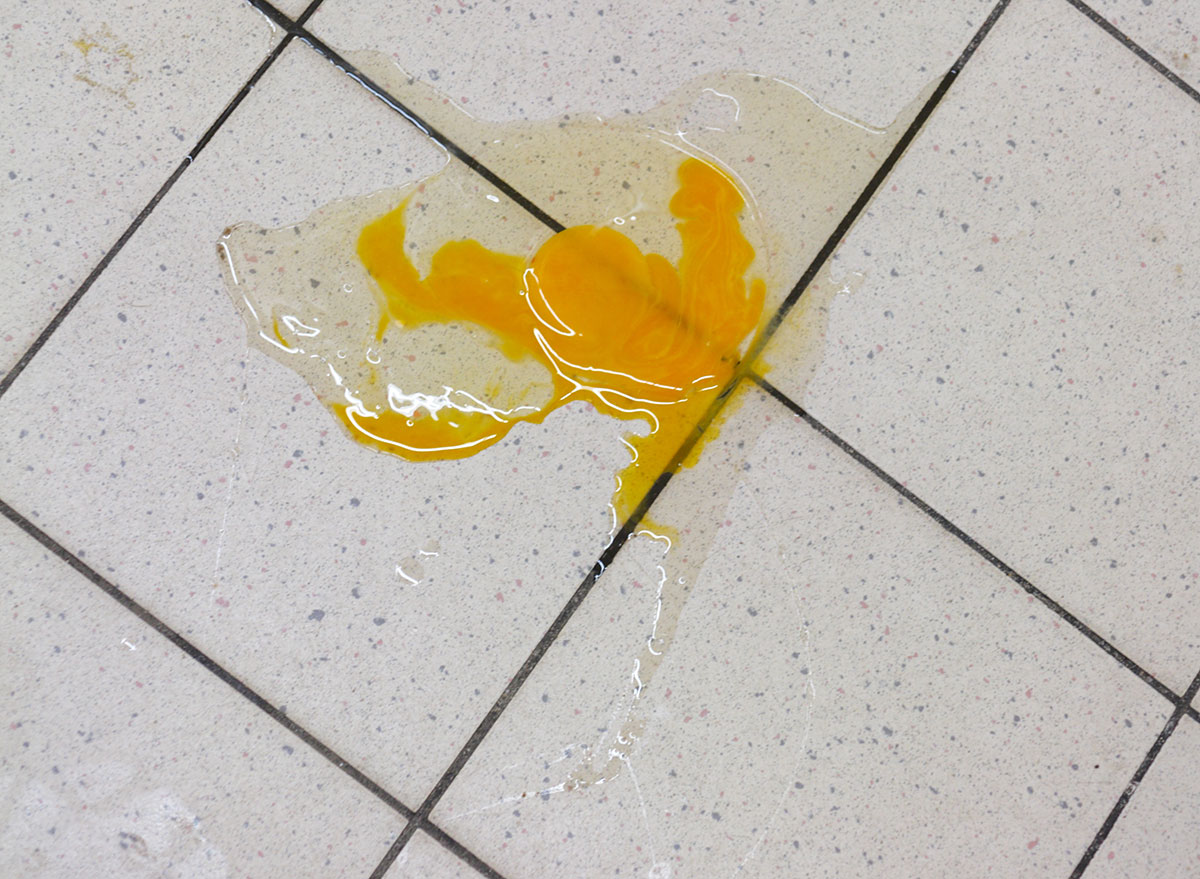
If you notice the same spill in your grocery store more than once during your shopping trip, it's likely the store isn't cleaning it up quickly enough. SGC notes that in a store with high cleanliness standards "porters responsible for spotting and mopping up messes should be roaming the store regularly." If obvious messes aren't taken care of quickly, it's unlikely that precautionary round-the-clock sanitizing is taking place at the store.
Staff aren't wearing face coverings
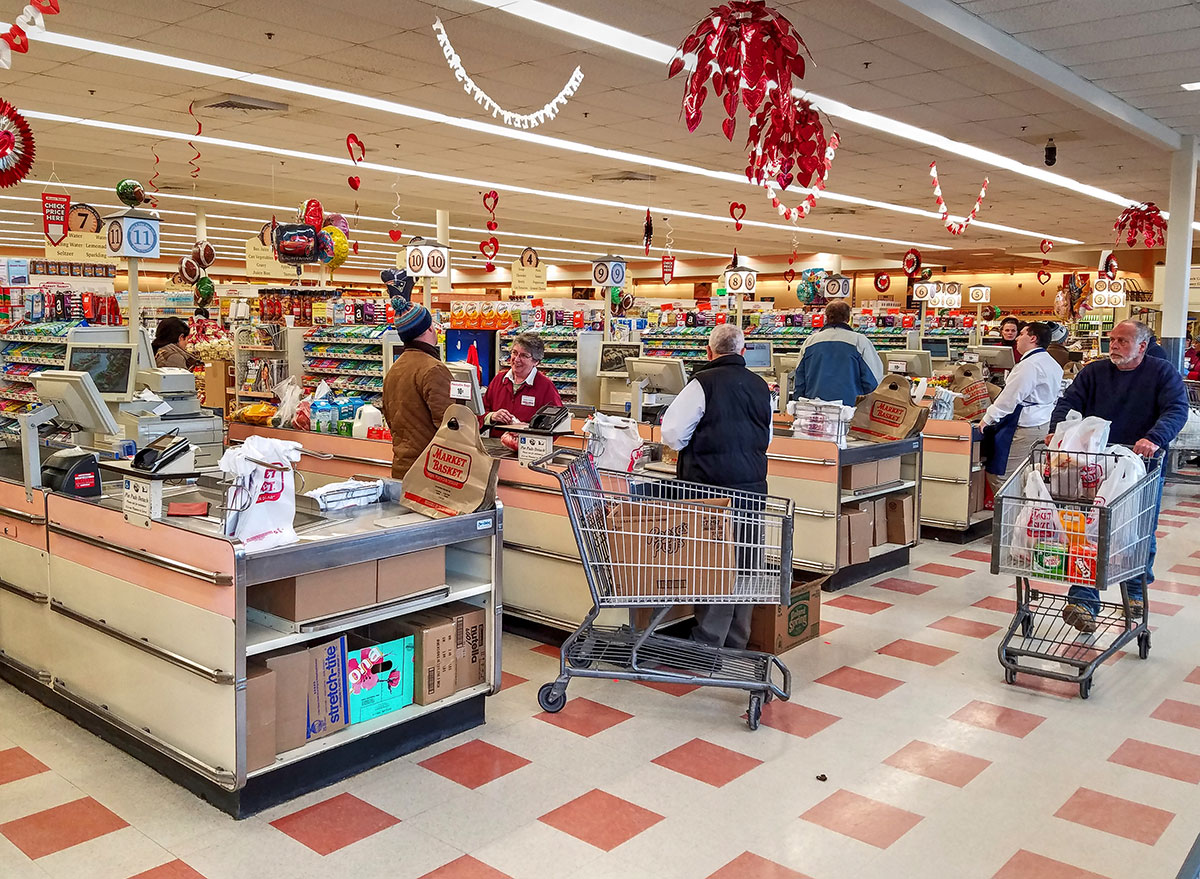
The CDC recommends all essential workers, which includes your grocery store staff, should wear face masks or other homemade face covers. "CDC has recommended cloth face coverings to slow the spread of the virus that causes COVID-19. Wearing them may help people who unknowingly have the virus from spreading it to others," the CDC's website outlines. Although wearing face masks may not be mandated by your local government, a growing list of retailers like BJ's Wholesale Club, Target, Walmart, Harris Teeter, and Publix, is heeding the CDC guidelines and requiring their employees to wear face coverings at all times. If your local grocer hasn't enforced this rule with their staff, it may be a sign they're taking a lax approach to public health.
Store doesn't regulate crowds
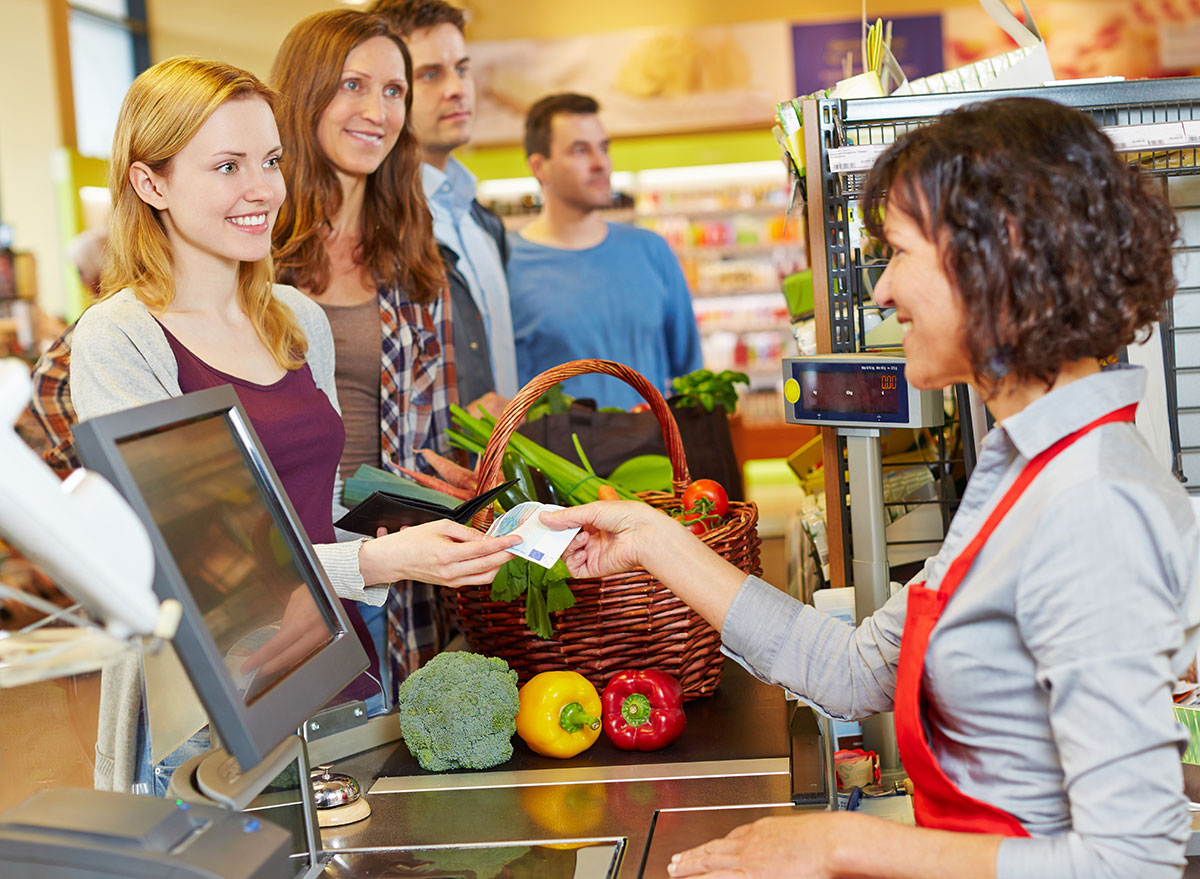
Many nation-wide stores, including Walmart and BJ's, are limiting the number of shoppers allowed in the store at one time. The number will vary based on square footage of each location. If your grocery store isn't taking any actions to control the crowds that enter their facilities, it may mean you will have a more difficult time safely distancing yourself from other shoppers. And we know the increased exposure to others can lead to a higher likelihood of contracting coronavirus.
STAY INFORMED: Sign up for our newsletter to get the latest coronavirus foods news delivered straight to your inbox.
